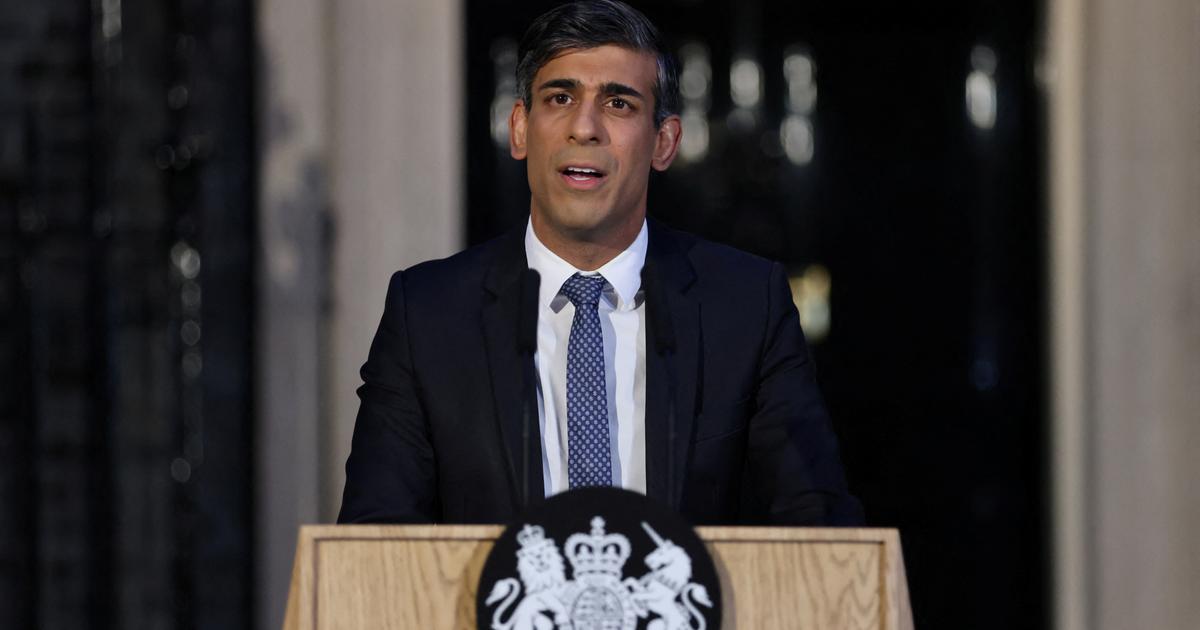Rescue of some 200 immigrants of sub-Saharan and North African origin who were traveling in four small boats located in the Atlantic in waters south of Gran Canaria on December 20. Ángel Medina G. (EFE)
Spain will close the year 2022 with a relevant decrease in irregular immigration.
From the beginning of the year to the middle of December, almost 30,000 people arrived: it is the lowest figure since 2017 and represents a 23% drop compared to 2021, an unusual drop in recent years.
The drop is linked to the greater control that Morocco is exercising on its Atlantic coast after
reconciliation
with Spain, but also to the barriers that Mauritania, Senegal, Gambia or Algeria impose on emigrants.
The fight against the mafias is, according to the Spanish and Moroccan authorities, another factor that has had an influence, although neither of the two countries provides verifiable data.
Spain has spent fifteen years concentrating on working at source to tackle irregular immigration.
It allocates tens of millions of euros to finance material and training in the most strategic countries in this field, but it does not always obtain the same results.
This last year, as the Foreign and Interior Ministers have celebrated several times, the African partners have managed to stop four out of ten migrants who tried to leave irregularly for Spain at their source.
The figure is not exact and cannot be applied generically to all countries because each one has its own context and efficiency.
There are partners like Mauritania that slow down more than 34% and others, like Morocco and Algeria, with more pressure, that do not reach 20% (and the figures vary throughout the year).
In any case,
The route to Spain is the only one in the EU that closes the year with downward numbers, although deaths and disappearances continue to be constant.
In 2022 some 700 people have died or disappeared, according to the International Organization for Migration.
More than 2,000, according to the NGO Caminando Fronteras.
More information
The migratory route from Morocco to the Canary Islands continues to register a trickle of deaths despite the drop in the transit of small boats
Arrivals have fallen both on the coasts of the Peninsula and the Balearic Islands and on those of the Canary Islands, almost in equal parts.
On the first route, used by emigrants leaving Algeria and Northern Morocco, landings fell by 24.7%, according to official data from the Ministry of the Interior.
These numbers reveal that Rabat maintains control of its Mediterranean coast and that Algiers, despite its discomfort with Spain for siding with Morocco in the Western Sahara conflict, continues to stop emigration from its territory.
Relations with Algeria in the area of migration, however, have deteriorated.
In addition to having suspended the admission of its irregular emigrants that Spain can no longer expel, the lesser collaboration between authorities is cause for concern.
A police source dedicated for years to irregular immigration explains: “Cooperation with Algiers is not flowing, right now it is not good.
The drop in arrivals has a lot to do with the operations against the Algerian trafficking networks that we have dismantled here, and not so much with the stop at source”.
In the Canary Islands there is a decline that has not been seen since the route was reactivated in 2019: the drop is 24.9%, according to Interior.
A reserved document from the European Commission provides more data that allows further analysis.
Most of the boats no longer leave Western Sahara, controlled by Rabat, but rather southern Morocco.
The change began to consolidate after the reconciliation of Morocco and Spain last March, after the Spanish turn in relation to the Western Sahara conflict: with the reestablishment of relations, the Moroccan authorities insisted on that area which, despite from being completely militarized, it had been the main point of departure for the islands two years ago.
In addition to exercising greater control, there was a substitution of corrupt officials, according to Spanish sources.
Other relevant information in the report is the number of departures from Senegal (274) and Mauritania (218), which shows how greater police collaboration with certain countries has shielded part of the African coasts.
Last year, around this time, more than 2,000 people had left Mauritania, more than 500 from Senegal and more than 300 from The Gambia.
With these three countries, collaboration has become closer in recent months, according to sources dedicated to border control.
The three also receive subsidies from Spain.
Mauritania, more than 10 million euros;
Senegal, three million;
and Gambia, less than 100,000 euros.
In addition to direct aid, tens of thousands of euros are added to finance the activity of Spanish agents on the ground or items that even pay for fuel for maritime patrols.
The drop in arrivals, for the moment, is only seen on maritime routes, while at the land borders of Ceuta and Melilla irregular entries have grown by almost 30%.
Between the two, there were 2,210 unauthorized crossings on December 15.
Morocco, according to Spanish sources, has deployed reinforcements around the fences and these stop the constant trickle of migrants and refugees trying to jump over them, but the pressure has remained and land crossings continue to be the only option for hundreds of people.
The most numerous nationality among those who enter Spain irregularly is Moroccan, with more than 9,600 people.
They are followed by the Algerians (4,692) and the Senegalese (2,269).
These data are from the European Border Agency, Frontex, and are not public.
Spain is the only country of entry to the EU that hides the nationalities of migrants who enter its territory irregularly.
The official explanation to justify the lack of transparency is that revealing this information may harm bilateral relations with the countries of origin of these migrants, but it is an exclusive interpretation of Spain and not Greece, Italy, Malta, Hungary or Poland, which do share this information and other relevant data such as how many children or women reach their shores.
On the other hand, the year closed with a marked increase in asylum requests.
There are almost 114,000 applications, a growth of 84%.
Spain is thus for the third consecutive year among the first three EU countries that register the most asylum applications.
The applicants who request protection in Spain are, above all, from Venezuela, Colombia and Peru.
Subscribe to continue reading
Read without limits
Keep reading
I'm already a subscriber




/cloudfront-eu-central-1.images.arcpublishing.com/prisa/WSGIPYQJ3ZBJBLTWACM5ZX2QGA.jpg)




